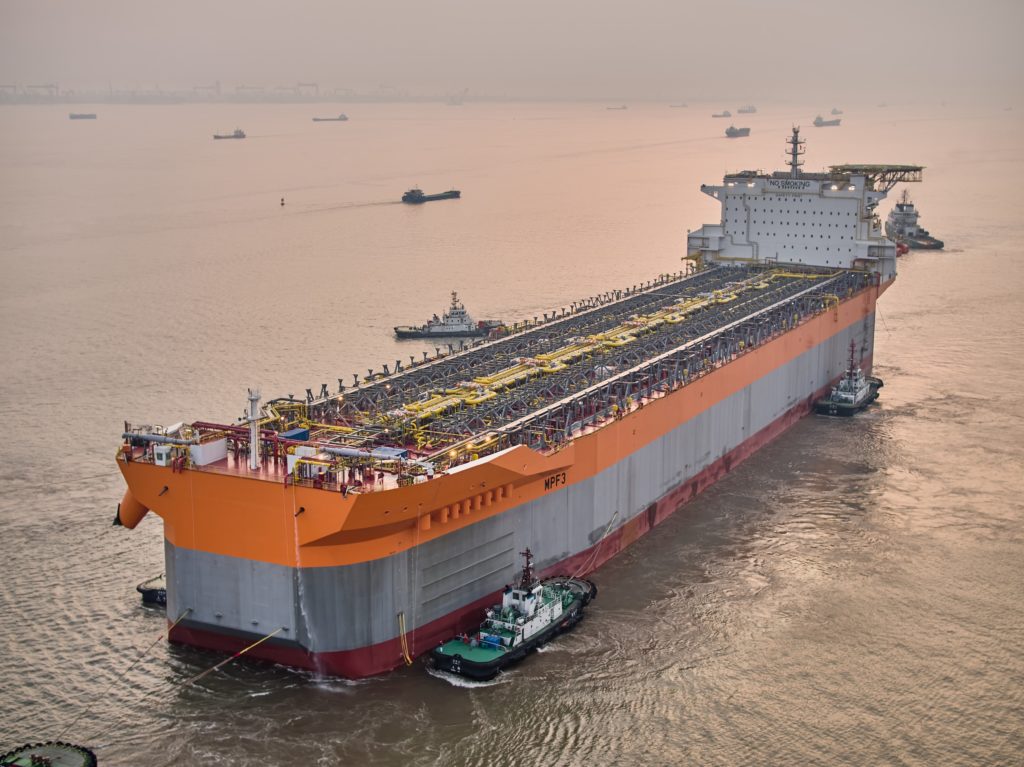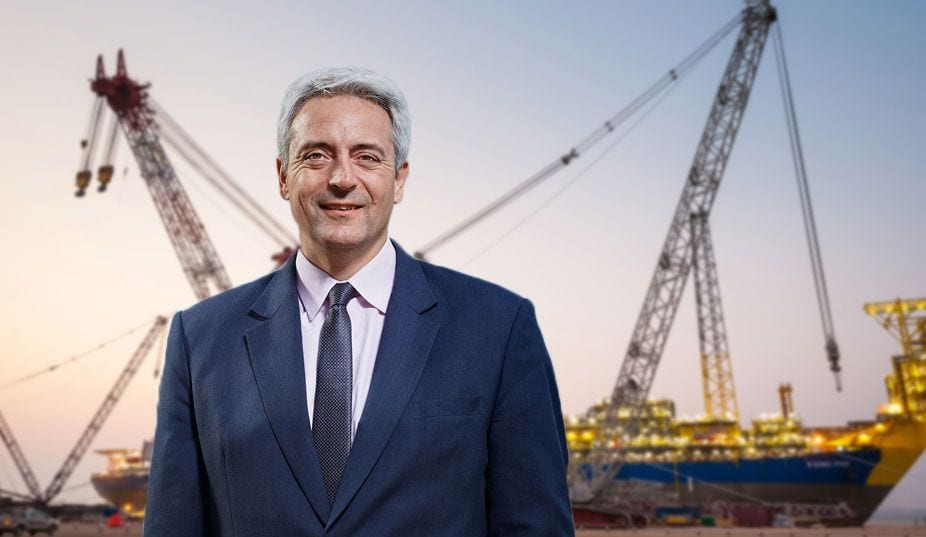Sustainability is a crucial tenet for SBM Offshore, the builder of the floating production storage and offloading (FPSO) vessels operating in Guyana’s offshore Staborek Block.
In a video published on LinkedIn last week, Chief Executive Officer (CEO) Bruno Chabas recalled that 10 years ago, the world’s focus was on “peak oil production” in preparation for a lack of oil, at some point in time.
But the tune has changed and the world is headed in a different direction.
“The focus had shifted from peak oil production to sustainability and the emphasis has increased over the past ten years,” he noted.
The COVID-19 pandemic, however, brought an unexpected curveball that led to the “Energy Trilemma”, Chabas explained.
The Energy Trilemma refers to the need to balance energy reliability, affordability, and sustainability.
How is SBM Offshore addressing this? Chabas explained that the company stands at the core of answering the energy needs of society on three pillars – sustainability, affordability and availability.
Those tenets led SBM Offshore to create its Fast4Forward concept for its FPSOs. This is based on five key principles: engaging early with clients, standardisation, focus on flawless execution, partnering with the supply chain and use of digital solutions in today’s volatile environment. Because of it, the Liza Unity was the first FPSO to be awarded the SUSTAIN-1 notation.

Now, every other Stabroek Block FPSO built by SBM Offshore will utilise that very sustainable design.
Additionally, SBM Offshore leverages the United Nation’s Sustainable Development Goals (UN SDG) framework to steer on positive impact. It has identified nine SDGs to which it can contribute with the most impact, and which are most material to its business.
In Guyana the company further continued its technical, financial and advisory support, in light of SDG 3 ‘Good Health and Well-Being’, with Plympton Farms. This agricultural project is turning barren earth into lucrative farmland, creating stable jobs for residents in remote areas of the country. SBM Offshore said in its 2022 Annual Report that it aided in constructing greenhouse structures at the farm. The project is further set to help reduce the company’s environmental footprint associated with food production and imports by providing FPSOs with quality, fresh locally grown food rather than imported food. The farm supplied approximately 1,188 kg of fresh farm produce in 2022 to FPSOs Liza Unity and Liza Destiny.
With increasing offshore projects, SBM Offshore looks to expand Guyana supplier base
To further support local economic growth, SDG 8 ‘Decent Work and Economic Growth’ and act on the need for sustainable income generation and a diversification of Guyana’s economy, SBM Offshore provided support to Hubu Aquafarm to boost production of shrimp and prawns.
SBM Offshore also strives to embed the selected SDG topics within the organisation. Targets are built with inputs and commitments from different business entities, such as business development, Health, Safety, Security & Environment (HSSE) and operations, as part of business plans and budgets.



